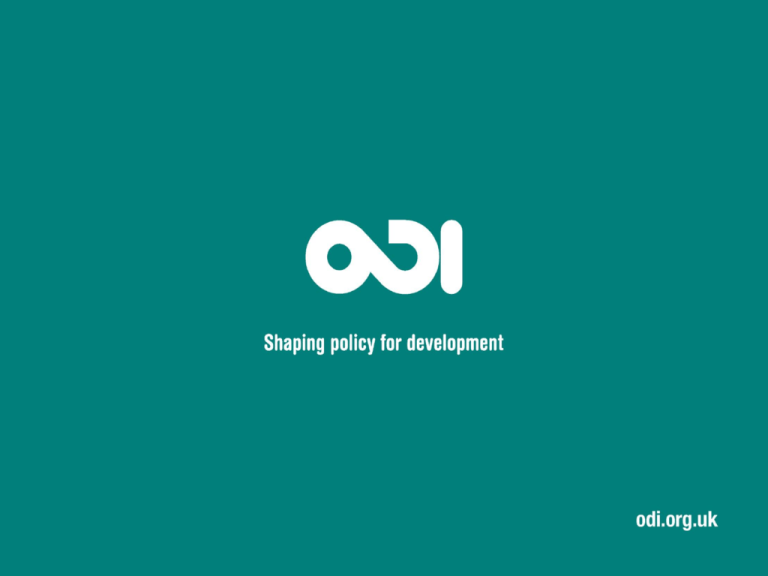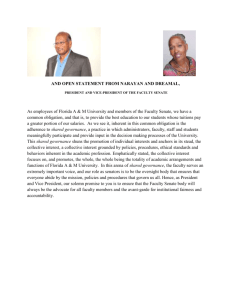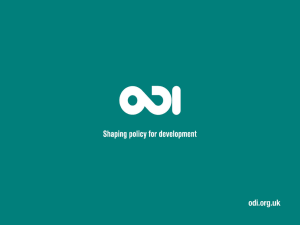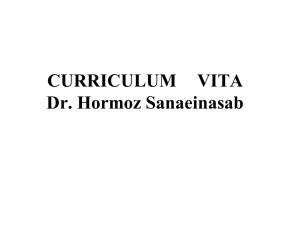day1-2atavakolisimsonodi
advertisement

Unblocking results: using aid to address governance constraints in public service delivery Heidi Tavakoli and Rebecca Simson Overseas Development Institute (ODI) 20th June, 2013 Outline of the presentation Governance constraints and their existence Activities Enabling factors What does this mean? 3 Typical governance constraints Type of governance constraint Explanation Common effects Policy and institutional incoherence Unclear and duplicated mandates. Policy and resource frameworks in conflict. Incentives for staff to either refrain from implementing policies, or simultaneously pursue several conflicting policies at once. Poor top-down performance disciplines and bottom-up accountability mechanisms Weak top-down and bottom- Rules not developed or up accountability enforced, instructions are mechanisms. not followed and functions are not carried out. Limited scope for problem-solving and local collective action solutions Groups are not acting together to produce solutions that are appropriate and in the collective interest. Result in the under or overutilisation of services, and are associated with a longstanding disrepair of shared goods. LGDP • Collected examples of aid packages that have addressed governance constraints • Examined 4 aid packages in Tanzania, Sierra Leone, Uganda – very diverse How were the constraints addressed? Activities 6 Enabling factors What type of aid-funded activities helped? Governance Constraints Activities Policy and institutional incoherence • Support government prioritisation processes, with particular focus on addressing specific implementation gaps • Target and resolve conflicting mandates which impinge on implementation Poor performance disciplines • Top-down: support the combination of incentives and information, providing managers with more information with which to hold their subordinate department or individuals to account • Bottom-up: facilitate stakeholders to recognise their collective power to effect change and exercise their oversight responsibilities in a practical way • Act as coaches and brokers and use ‘outsider status’ to encourage stakeholders to meet, discuss and resolve common problems Limited scope for problem solving and local CA 7 What enabling factors helped? Identifying and seizing windows of opportunity Focusing on reforms with tangible political payoffs Building on what exists to implement legal mandates Moving beyond reliance on policy dialogue Facilitating problem-solving and local collective action Adaptation by learning 8 ENABLING FACTOR CURRENT PRACTICE (STYLISED) Windows of opportunity Country strategies based Weigh need against on needs assessments opportunity to affect change Tangible political payoffs Reluctance to have projects associated with political platforms/agendas Accept that aid is inherently political and work with the political incentive structure Building on what’s there Tendency to want to start afresh with a revised legal, policy or regulatory framework Get existing framework implemented, however imperfectly, and then adjust Moving beyond policy advice TA engaged to advise on the content of policies TA engaged to support implementation of policies Acting as facilitators External agents provide sound technocratic advice for govts to ‘take or leave’ External agents help to facilitate and mediate a local dialogue about problems and solutions Adaptive and responsive to lessons learnt Pre-defined logical frameworks that lock donors and implementers into a set of activities Flexible frameworks that judge performance on the basis of a sensible effort, rather than pre-defined targets 9 PROPOSED PRACTICE Research Phase II Research objectives: Validate the research findings, with a larger and more diverse set of case studies Explore implications for development partner practices Identify the challenges to more politically-astute aid practices, and solutions to these 10 Thank you If you are interesting in engaging with this initiative please contact: Rebecca Simson r.simson@odi.org.uk Helen Tilley h.tilley@odi.org.uk Heidi Tavakoli h.tavakoli@odi.org.uk 11







